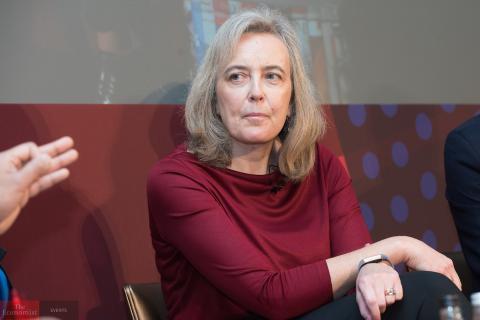The Chief Executive of blood cancer charity Anthony Nolan, Henny Braund, has written to the Health Secretary, Matt Hancock, to voice concern about the relaxation of the shielding guidance in England which comes into effect tomorrow (Saturday 1 August).
In the letter she shares concerns raised by patients who have received, and are in need of, stem cell transplants about what the change it means for them and their families.
The full letter:
Dear Secretary of State,
Re: Working together to support clinically extremely vulnerable individuals
Tomorrow’s relaxation of the shielding guidance will be welcome news for many people. But others are understandably concerned about what it means for them and their families. Anthony Nolan, the charity that supports people before, during and after a stem cell transplant, shares these concerns. We want to work with the UK Government to ensure that stem cell transplant patients have clarity, understand their rights and continue receiving the support they need.
A stem cell transplant is a potentially lifesaving treatment for those with blood cancer and blood disorders. However, it also leaves patients severely immunocompromised for months or even years. As such, they are at very high risk of getting seriously ill from coronavirus.
Our most recent patient survey, conducted just after the UK Government announced that shielding guidance would be ‘paused’ from Saturday 1 August, revealed considerable confusion and frustration amongst respondents:
- ‘After announcements are made, we always have more questions than we’ve had answers.’
- ‘I have felt unsure or concerned at the way in which measures have been relaxed or adapted, and I would feel much more comfortable if the rationale for changing the guidance was explained to us.’
- ‘It feels as if we have been forgotten and are unimportant. The latest advice takes no account of personal situations, how vulnerable we are.’
People were especially worried about the prospect of being forced to return to an unsafe workplace. At the same time, many were already experiencing financial insecurity, leaving them in the impossible situation of choosing between their health or their jobs:
- ‘I am particularly worried about returning to work, I am unable to work from home to undertake my role. My only option to get to work is to use public transport, and I am very worried about using public transport for the foreseeable future even if I wear all of the required PPE and practice social distancing.’
- ‘Unsure how long my husband’s bosses will be sympathetic to our needs and will keep him furloughed for.’
- ‘I do have a job, but I can’t work so I am on unpaid leave. I have 2 months’ worth of savings and then I don’t know what will happen.’
These are complex situations and we understand that there is no one-size-fits-all approach. However, it is a fact that there will be people who need to continue shielding after tomorrow. More must be done to support them and we urge you to take the following steps:
- Maintain an ongoing dialogue with patients, healthcare professionals and charities.
- Publish the evidence underpinning updated guidance. It is not enough to simply say that the transmission of COVID-19 in the community has gone down.
- Make it easier for people to access shielding guidance in the event of a local lockdown, for example through the introduction of a postcode lookup tool. If they cannot work outside their home, allow their GP or hospital clinician to provide evidence for their employer so they are not entirely reliant on receiving their letter from the UK Government.
- Ensure that everyone who needs to continue shielding – be that because of a local lockdown or advice from their healthcare team – has the right emotional and practical support in place. We back calls from other charities for the UK Government to cover 80% of the salaries of those who cannot work.
We are aware that a new risk prediction model is being developed by the University of Oxford and we support this move to more nuanced shielding advice. However, we also understand that the model will not be ready until the autumn. This leaves patients in limbo over the next few months.
Anthony Nolan stands ready to support stem cell transplant patients. Since the start of the coronavirus pandemic, we have already helped nearly 30,000 patients through our helpline, Clinical Nurse Specialist clinics, webpages and forums. We have also launched a COVID Emergency Patient Fund and a new Telephone Emotional Support service. Please help us to help you and ensure that clinically extremely vulnerable individuals are not forgotten.
Yours sincerely,
Henny Braund
Chief Executive
For patients who have recently, or are due to, receive stem cell transplants, healthcare teams will be able to help answer any specific questions.
Anthony Nolan has published guidance, for patients, here. Patients can also call the charity’s helpline on 0303 303 0303 or email: patientinfo@anthonynolan.org
